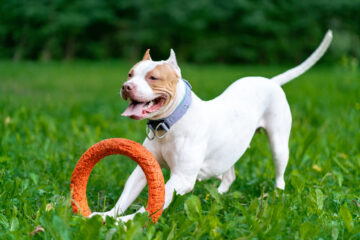If your Yorkie is shaking, it could be due to fear or anxiety. Remove the triggering situation to calm them down.
Yorkshire Terriers, or Yorkies, are adorable companions known for their lively personalities. However, when you notice your Yorkie shaking, it’s essential to address the issue promptly. Shaking in Yorkies can be caused by various factors, including fear, anxiety, pain, low blood sugar levels, or even a medical condition like hypoglycemia.
It’s crucial to observe any accompanying symptoms and consult with a vet to determine the underlying cause of the shaking. Understanding the reasons behind your Yorkie’s shaking will help ensure their well-being and provide the necessary care and support. By identifying and addressing the root cause, you can help your furry friend feel more comfortable and secure.

Credit: www.pinterest.com
Causes Of Shaking In Yorkies
Shaking in Yorkies can be caused by fear or anxiety. If your Yorkie starts shaking, try removing them from the triggering situation and providing a calm and safe environment. It’s important to address their anxiety as it may not subside on its own.
Fear And Anxiety
If you think your Yorkshire Terrier is shaking in fear, immediately stop or remove them from the situation that is causing their anxiety. For example, if shaking begins when they are picked up, put them down. If another dog has spooked them, get them away. Yorkies trembling in fear will not subside on its own.
Underlying Medical Conditions
Shivering and trembling may be symptoms of something serious — like poisoning, kidney disease, or injury. So, if your dog suddenly starts trembling or shivering, it’s important to take note of other symptoms such as diarrhea, vomiting, or limping. Then talk to your vet right away.
Hypoglycemia
A more serious cause of shaking in Yorkies is Hypoglycemia. Caused by a rapid drop to their blood sugar levels, this illness can cause shivering. If your Yorkie shows symptoms of shaking and trembling along with weakness, disorientation, and possibly seizures, contact your vet immediately as Hypoglycemia can be life-threatening to your pet.

Credit: www.youtube.com
Symptoms And Signs
When it comes to understanding why your Yorkie is shaking, it’s crucial to be aware of the various symptoms and signs that may accompany this behavior. Paying attention to these indicators can help you identify any underlying issues and provide appropriate care for your furry companion.
Shivering And Trembling
One of the most noticeable symptoms of a shaking Yorkie is shivering and trembling. This can occur due to various reasons, including fear, anxiety, cold, pain, low blood sugar levels, or medical conditions such as kidney disease or neurological issues. If you notice your Yorkie shivering or trembling, it’s essential to observe for any additional symptoms and seek veterinary assistance if necessary.
Other Behavioral Changes
In addition to shivering and trembling, there may be other behavioral changes in your Yorkie. These can include excessive whining, restlessness, hiding, or clinginess. These behavioral cues can offer insight into the potential reasons behind your Yorkie’s shaking, and addressing these changes promptly is crucial for their well-being.
Physical Symptoms
Aside from behavioral changes, your Yorkie may exhibit physical symptoms alongside shaking, such as vomiting, diarrhea, limping, or changes in appetite. These physical manifestations can indicate underlying health issues that require immediate attention and treatment. It’s important to monitor these symptoms closely and consult with a veterinarian for a thorough assessment and proper care for your pet.
Management At Home
If your Yorkie is shaking, it might be due to anxiety or fear. Remove them from the situation causing their distress and seek veterinary advice if the shaking persists. Take note of any other symptoms or changes in behavior to inform the conversation with your vet.
Calming Treats And Foods
Consider giving your Yorkie calming treats or their favorite foods to help alleviate their shaking.
Creating A Safe Space
Provide a safe space where your Yorkie can retreat to when feeling anxious, helping them feel secure.
Use Of Calming Aids
Explore calming aids such as pheromones or supplements to help your Yorkie manage their stress or anxiety.

Credit: paradepets.com
Professional Guidance
If you notice your Yorkshire Terrier shaking or trembling, seeking professional guidance is crucial to ensure your pet’s health and well-being. Consulting a veterinarian, considering potential treatments, and addressing any behavioral issues through training are primary steps to help your Yorkie overcome shaking episodes and maintain a happy, healthy life.
Consulting A Veterinarian
If you observe consistent shaking in your Yorkie, seeking prompt veterinary care is essential. A vet can conduct thorough examinations to diagnose any underlying health issues, such as hypoglycemia, neurological conditions, or pain-related problems, which could be causing the shaking. Additionally, discussing your dog’s diet, exercise routine, and overall lifestyle with a veterinarian can provide valuable insights into effective management strategies.
Potential Treatments
Upon receiving a diagnosis from the vet, potential treatments for your Yorkie’s shaking will be recommended. These may include medication, dietary changes, or specific management techniques tailored to address the underlying cause. It’s important to follow the vet’s guidance closely and regularly monitor your pet’s progress to ensure the chosen treatment approach is effective.
Training For Behavioral Issues
In some cases, Yorkies may shake due to behavioral issues such as fear, anxiety, or stress. With professional guidance from a dog trainer or behaviorist, you can implement targeted training techniques to help your dog overcome these issues. This may involve desensitization exercises, positive reinforcement training, or creating a safe and comforting environment to alleviate your Yorkie’s anxiety and reduce shaking episodes.
Preventive Measures
If you are concerned about your Yorkie shaking, there are several preventive measures you can take to ensure their well-being. These measures include regular check-ups, proper nutrition, and environmental enrichment.
Regular Check-ups
Regular check-ups with your veterinarian are crucial for maintaining your Yorkie’s health. These check-ups allow for early detection and prevention of potential health issues that may be causing the shaking. Your vet will conduct a thorough examination, assess your dog’s overall health, and address any concerns you may have.
During the check-up, your vet may recommend specific tests or treatments based on your Yorkie’s individual needs. This may include blood tests to check for any underlying medical conditions, X-rays to assess their joint health, or dental examinations to prevent any dental diseases.
Proper Nutrition
Proper nutrition plays a vital role in keeping your Yorkie healthy and reducing the chances of shaking. A well-balanced diet, tailored to their specific needs, provides the necessary nutrients for optimal health. Feed your Yorkie high-quality dog food that is appropriate for their age, size, and activity level.
In addition to providing nutritious meals, it is essential to establish a regular feeding schedule. This helps to regulate blood sugar levels and avoid sudden drops that can lead to shaking. Avoid giving excessive treats or table scraps, as they can upset your Yorkie’s stomach or contribute to weight gain.
Consult with your veterinarian to determine the best diet plan for your Yorkie and address any concerns about their nutrition.
Environmental Enrichment
Creating a stimulating environment for your Yorkie is essential for their mental and emotional well-being. Environmental enrichment helps to prevent boredom, anxiety, and stress, which can contribute to shaking.
Provide your Yorkie with plenty of toys, puzzles, and interactive games to keep them mentally engaged. Set aside time for daily exercise and play to promote physical activity and mental stimulation.
Creating a safe and comfortable space for your Yorkie is also crucial. Make sure they have a cozy bed, a designated area for rest, and access to fresh water at all times. Minimize exposure to loud noises, harsh weather conditions, and other potential stress triggers.
Additionally, consider socializing your Yorkie with other friendly dogs and exposing them to different environments to enhance their confidence and reduce anxiety.
In conclusion, taking preventive measures such as regular check-ups, proper nutrition, and environmental enrichment can significantly contribute to reducing shaking in your Yorkie. By prioritizing their health and well-being, you can help ensure a happy and vibrant life for your furry friend.
Common Triggers For Shaking
If you notice your Yorkie shaking, potential triggers could be anxiety, fear, or medical issues. Immediate action to ease stress should include removing them from the source. Contacting a vet for shaking related to health concerns is essential for appropriate care and treatment.
Temperature Changes
Your Yorkie may shake in response to abrupt temperature changes. Yorkies are sensitive to cold and may shiver to generate body heat.
Stressful Situations
Stress can trigger shaking in Yorkies. Loud noises, new environments, or separation anxiety can lead to trembling behavior.
Pain Or Discomfort
Shaking can also indicate pain or discomfort in your Yorkie. It’s essential to monitor other symptoms and consult a vet if shaking persists.
Community Insights
When it comes to understanding why your Yorkie is shaking, insights from the community of fellow Yorkie owners can offer valuable experiences and tips to help you navigate this situation more effectively.
Experiences From Yorkie Owners
Many Yorkie owners have shared their personal experiences with their fur babies shaking, attributing it to various reasons such as fear, anxiety, or even underlying health issues. Some owners have noticed that their Yorkies shake when introduced to new environments or around loud noises, while others have observed shaking episodes during vet visits or grooming sessions. Understanding these real-life scenarios can provide you with a broader perspective on why your Yorkie might be shaking.
Tips From Online Forums
Online forums dedicated to Yorkie care and ownership can be a treasure trove of advice and tips from experienced pet parents. Yorkie enthusiasts often share practical tips on how to calm a shaking Yorkie, such as creating a safe and comfortable environment, offering calming treats, or seeking professional guidance if the shaking persists. By tapping into the collective wisdom of these online communities, you can gain valuable insights on how to address your Yorkie’s shaking behavior.
Frequently Asked Questions
What To Do If Your Yorkie Is Shaking?
If your Yorkie is shaking, observe for fear or anxiety. Remove them from triggering situations and consult a vet if worried.
Should I Be Worried If My Dog Is Shaking?
If your dog is shaking, it could be a sign of something serious. Watch for other symptoms like vomiting or limping, and consult your vet promptly.
Why Is My Dog Shaking When Nothing Happened?
Your dog may be shaking due to feeling unwell, cold, or stressed. Always monitor for other concerning symptoms and consult your veterinarian if needed.
How Do I Fix My Dogs Shaking?
If your dog is shaking, there could be several reasons for it. If it is due to fear or anxiety, remove them from the triggering situation. If you notice other symptoms or are concerned, consult a vet. You can also try giving them calming treats or their favorite food, providing a hiding space, or using calming pheromones or supplements.
Training for separation anxiety or stress may also help.
Conclusion
If your Yorkie is shaking, it is important to address the underlying cause. It could be due to fear or anxiety, but it may also be a symptom of something more serious such as poisoning or kidney disease. Observing other symptoms and consulting with your vet is crucial.
Providing a safe and calm environment for your Yorkie and seeking professional advice will help alleviate their shaking and ensure their overall well-being.



